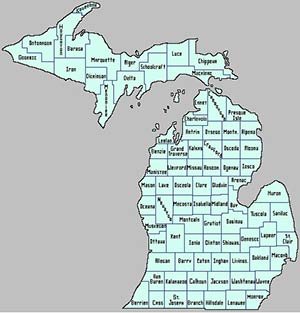The first of October, Michigan Farm Bureau’s print shop developed “help wanted” postcards and sent them to more than 300 registered farm labor contractors, mostly in the southeastern states of Florida and Georgia.
“Depending on what we hear back, and when, we might have to expand our search to other parts of the country,” said Ken Nye, the Farm Bureau’s horticulture specialist. “We’ve got the next six weeks, give or take, to get this year’s outstanding apple crop off the trees and into bins, to processors or fresh market retailers, or into storage.”
The exact number of workers needed is not known, but Nye said growers have reported being from 10 to 50 percent short of workers.
Job openings are being listed on the state government’s Web site, www.michaglabor.org. In Kent County, which includes the eastern side of Fruit Ridge just north of Grand Rapids, ten growers were looking for 100 workers and were paying from $13 to $16 per 18-bushel bin, with extra incentive hourly pay for picking some varieties, such as Honeycrisp. Other counties in the fruit belt along Lake Michigan had similar listings.
Growers feared a labor shortage could result this year after the freeze-out last year, when 90 percent of the state’s apples, peaches, and cherries were lost, and a big crop on the trees this year. With little fruit to harvest last year, seasonal workers sought work elsewhere, and many didn’t return.
Working in coordination with the Michigan Apple Committee, the Michigan Processing Apple Growers, and the state of Michigan’s Migrant and Seasonal Farm Worker Program, Michigan Farm Bureau designed, printed, and mailed postcards to farm labor contractors registered with the U.S. Department of Labor.
“We’re just trying to get their attention—let them know that there are hundreds of well-paying jobs available right now in Michigan,” Nye said. “There’s an opportunity here.”
—Richard Lehnert


Leave A Comment